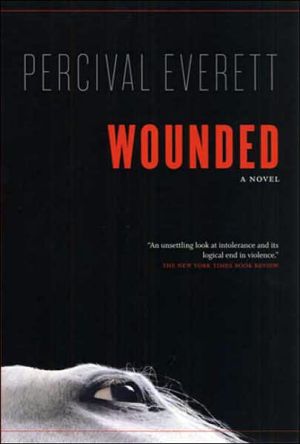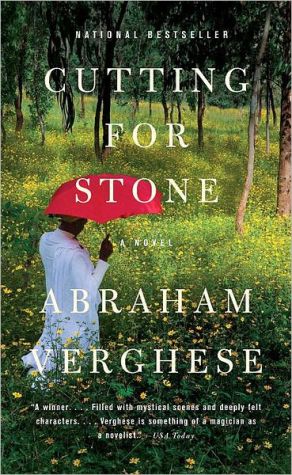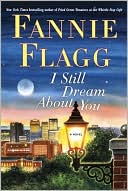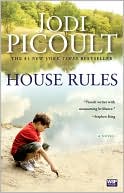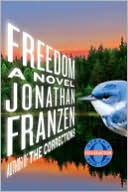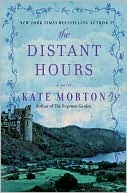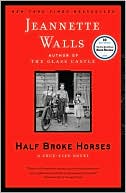Wounded
Time Out Chicago, Top 10 Book of 2005\ Winner of the 2006 PEN USA Literary Award for Fiction New paperback edition available! Training horses is dangerous--a head-to-head confrontation with 1,000 pounds of muscle and little sense takes courage, but more important, patience and smarts. It is these same qualities that allow John and his uncle Gus to live in the beautiful high desert of Wyoming. A black horse trainer is a curiosity, at the very least, but a familiar curiosity in these parts. It...
Search in google:
Training horses is dangerous—a head-to-head confrontation with a 1,000 pounds of muscle and little sense takes courage, but more importantly patience and smarts. It is these same qualities that allow John and his uncle Gus to live in the beautiful high desert of Wyoming. A black horse trainer is a curiosity, at the very least, but a familiar curiosity in these parts. It is the brutal murder of a young gay man, however, that pushes this small community to the teetering edge of fear and tolerance.As the first blizzard of the season gains momentum, John is forced to reckon not only with the daily burden of unruly horses, a three-legged coyote pup, an escape-artist mule, and too many people, but also a father-son war over homosexuality, random hate-crimes, and—perhaps most frightening of all—a chance for love.Highly praised for his storytelling and ability to address the toughest issues of our time with humor, grace, and originality, Everett offers yet another brilliant novel.The Washington Post - Jane SmileyWounded is a briskly written novel by an author of ready intelligence and considerable wit who is not shy about taking on complicated issues. I only wish he'd given the whole thing a hundred more pages.
\ From the Publisher\ "An unsettling look at intolerance and its logical end in violence." --The New York Times Book Review "Starts rhapsodically and rewards the reader with so many moments of love and laughter--Wounded is full of shocks and surprises." --Los Angeles Times "While it's tempting to compare Wounded to something by Cormac McCarthy or Walter Van Tilburg Clark, in which a brutal landscape makes for brutal men, this book is more about men who resist such pressures with all the humanity they can muster." --Time Out Chicago, Top Ten Book of the Year\ \ \ \ \ Jane SmileyWounded is a briskly written novel by an author of ready intelligence and considerable wit who is not shy about taking on complicated issues. I only wish he'd given the whole thing a hundred more pages.\ — The Washington Post\ \ \ Publishers WeeklyJohn Hunt, narrator of this western-with-a-twist, is a Wyoming rancher, horse trainer and Berkeley-educated art lover. He also happens to be black, an identity that Everett (American Desert; Erasure) presents as unremarkable in the rancher's accepting community. But intolerance rears its ugly head when the corpse of a gay man is found in a nearby canyon, and the cows of Hunt's Native American neighbor start turning up shot dead, racist slurs written in blood on the snow. Hunt believes a group of redneck thugs is responsible, but he's reluctant to get involved. He has enough on his plate, what with taking care of the ranch, tending the fires of a new romance and worrying about the health of old Uncle Gus, his cook and companion since his wife's death. When the gay son of an old college friend arrives at the ranch to recover from a bad breakup, Hunt must also referee the ongoing clash between young David and his homophobic father. The accumulation of these plot points overburden the novel, and Everett laconically renders the western milieu with a frustrating lack of sensory detail. David's disappearance toward the end fails to manufacture tension, and the violent conclusion is at once expected and unconvincing. (Sept.) Copyright 2005 Reed Business Information.\ \ \ \ \ Library JournalAllusions to the 1998 Matthew Shepard murder in Laramie, WY, are inescapable in Everett's 17th novel (after American Desert). Rancher John Hunt and Uncle Gus have carved out a comfortable bachelors' existence in the high desert of Wyoming, training horses and caring for maimed coyote pups. This life is far removed from John's alma mater, Phillips Exeter Academy, and from prison, where Gus spent 11 years for murder. Then the nearby killing of a young gay man and the subsequent arrest of their sometime handyman, Wallace, shatter their peace and isolation. In the palpable air of intolerance enveloping them all, John agrees to look after David, the son of an old college buddy, who arrives with his surly male lover. John's new romance with Morgan, a neighboring rancher, and odd cattle mutilations plaguing the Native American community round out the action that culminates with David's disappearance. Readers will have to decide whether the frontier justice of the violent ending is satisfying. In this taut modern Western, Everett reexamines the ethos of the American West and toys with familiar archetypes. A haunting depiction of intolerance and redemption, this is recommended for all fiction collections.-Jenn B. Stidham, Houston Community Coll. Northeast Copyright 2005 Reed Business Information.\ \ \ \ \ Kirkus ReviewsFrontier justice takes a contemporary turn in this Western novel of literary ambition and psychological depth. Amid the wilds of Wyoming, the latest from the prolific Everett (American Desert, 2004, etc.) finds racists and homophobes supplanting cattle rustlers as threats to societal stability. The novel's first-person narrator is John Hunt, a horse trainer who specializes in problem animals and a rancher who seems to attract human strays. As a strong man who does a tough job in a hard place, the uncommonly reflective widower reveals himself slowly. He's one of the few black residents in a region of whites and American Indians. He's also far better educated than most of his neighbors, with a New England prep school pedigree and a degree in art history from Berkeley (paintings by Paul Klee and Kandinsky grace his ranch house walls). One can't take the measure of Hunt too quickly, and he does his best to extend the same courtesy to others, though he plainly prefers animal companionship to that of most humans. Within this "live and let live" society, the murder of a homosexual, followed by the arrival of protesters, sparks a series of hate crimes (with racial epithets as calling cards) that law enforcement seems powerless to prevent. Hunt shines as the novel's beacon of decency, but Everett surrounds him with more characters than the novelist takes space to develop and some plot devices (a metaphor-heavy cave, a three-legged coyote) that scream Symbolism 101. Yet the narrative voice remains thoughtful and consistently engaging, while the momentum of the plot accelerates as complications ensue. A man who strives to adhere to moral absolutes, Hunt embodies a perfection that can aggravate somewho are closest to him, who feel that they fall short. Both Hunt and the reader ultimately discover that such perfection comes at a price. As an astute judge of character, Everett recognizes that wounds are an essential part of the human condition. The possibility of healing gives his novel its redemptive power.\ \
